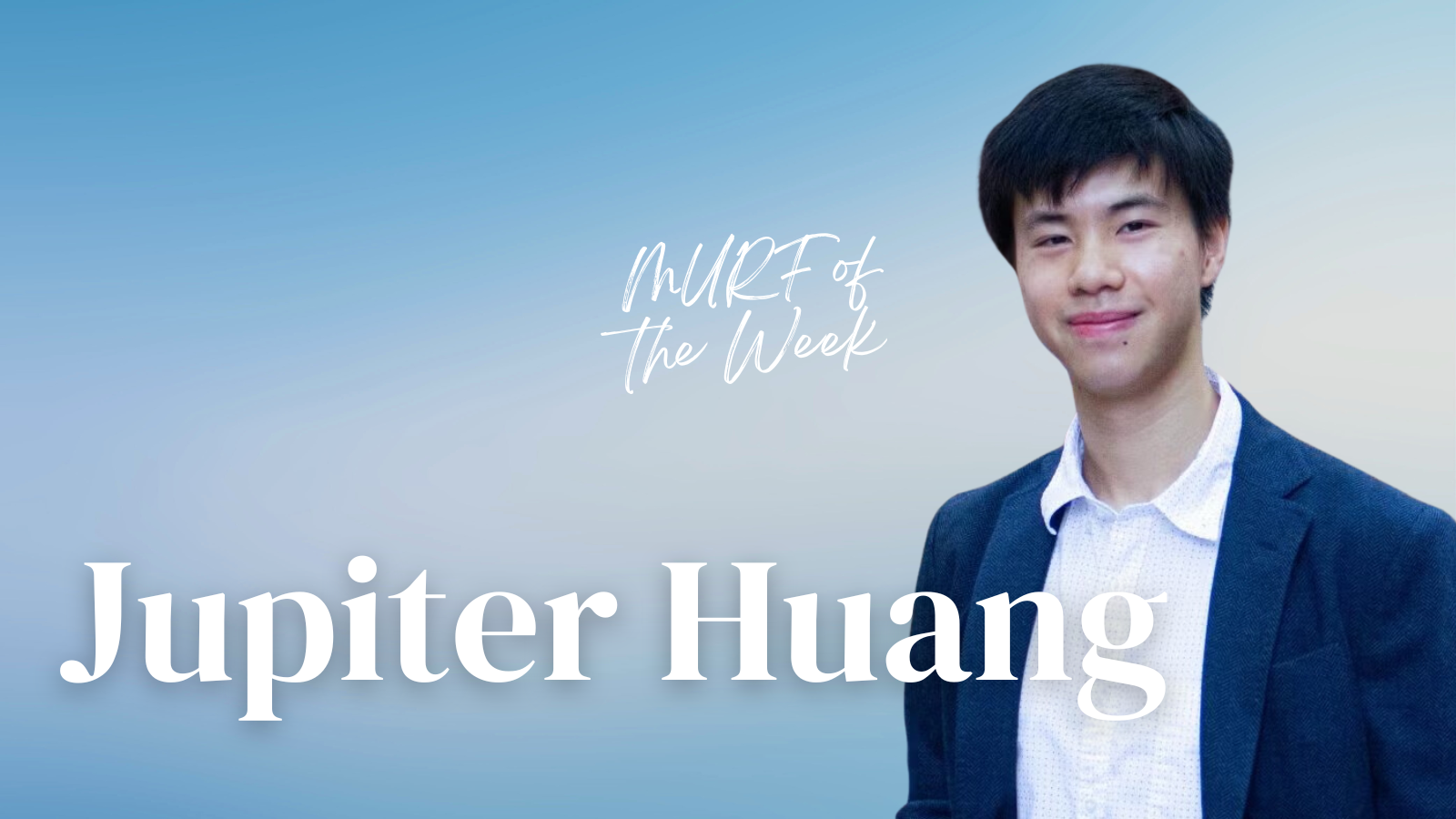MURF of the Week: Jupiter Huang
How has being a MURF shaped your academic or career goals?
Three years of being a MURF deepened my appreciation of the research process and helped solidify my interest in becoming a nuclear expert. The day-to-day requirements of research are far from the glamour of glossy journals and expert panels. My first two years of the program prioritized developing the grit to sift through reams of old documents in a sterile-looking archive or combing entire bodies of literature to find salient gaps. To my astonishment, and in no small part thanks to my faculty mentor Dr. Toshihiro Higuchi’s guidance, I really enjoyed these experiences. I also found the subject matter deeply moving. From the injustices of which nuclear workers were considered “deserving” of adequate radiological protection to the nuanced process by which diplomats persuaded a country to forsake the development of nuclear weapons, MURF encouraged me to understand both the organizational drivers and the stakes of nuclear policy. I’ve continually tapped into the motivation I first acquired as a MURF once I began working on arms control, risk reduction, and nonproliferation policy at a time when nuclear dangers have crept ominously back to the forefront of foreign affairs.
What advice would you give to future MURFs?
Take full advantage of the Mortara community—get to know your cohort and the ones before you; research can be a slog at times, and I certainly appreciated having previous MURFs to reach out to. Additionally, be thoughtful about your research tasks early on, focusing on the skills you aim to garner rather than the subject matter itself. After you’ve built out that experience, don’t be afraid to ask your faculty mentor to work together on projects more aligned with your interests. Your time as a MURF flies just as quickly as the Georgetown experience, cherish it.
What’s a memorable moment or challenge you faced as a MURF?
Having to present my work on the relationship between technological development and changing expectations for deterrence in front of scientists and national security policymakers at the Los Alamos National Laboratory last summer proved both daunting and immensely memorable. I had faith in the integrity of my research, but crafting a punchy and coherent policy argument from the mountain of archival evidence and analysis behind the project was a truly novel task. For the first time, I felt the expectation of speaking as a “subject matter expert,” and worked with the advice of the brilliant faculty here to distill my work and ideas to be fit for purpose.
How has your research evolved over your time in the program?
I started the MURF program interested in energy security and the more quantitative aspects of political science. I’ve gravitated quite far from those initial interests but still found ways of engaging concretely with the political science literature through the angle of rigorous historical work. As a coincidence, almost all the work I’ve done as a MURF has explored the linkages between nuclear energy, international security, and the ultimately political decision to weaponize nuclear science—in a way, I’ve been lucky to coherently loop in most of my academic interests.
If your research were a movie, what would the title be?
Oppenheimer Part Two: The Aftermath of Promethean Hubris
What’s one thing you learned as a MURF that surprised you?
Almost every academic researcher I’ve met has a healthy degree of uncertainty about the value, quality, and finality of their work—that doubt, and the knowledge that research results will invariably be challenged, has certainly kept me eager to do more.


